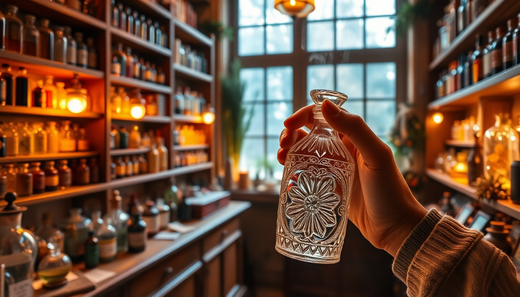
January Through the Senses: Fragrances of History
Share
Ever wondered what history smelled like? As we embark on a new year, let's take a journey through the past and explore how fragrance has been intricately woven into the fabric of significant historical events. In this blog post, we'll dive into the captivating story of Napoleon Bonaparte's love affair with Eau de Cologne and how his fragrance preferences shaped the cultural landscape of 18th-century Europe.
Napoleon's January Campaign and His Fragrance Obsession
In January 1797, Napoleon Bonaparte began his Italian Campaign, a pivotal moment in European history that would cement his reputation as a military genius. However, what many may not know is that this iconic figure was also deeply obsessed with cologne – a fact that adds a surprisingly human touch to his larger-than-life persona.
Napoleon was known to use up to 60 bottles of Eau de Cologne per month, a staggering amount that speaks volumes about his meticulous attention to personal hygiene and fragrance. This passion for cologne was not merely a quirk, but a reflection of the broader cultural trends of the time.
The Allure of Eau de Cologne
Eau de Cologne, a refreshing blend of citrus and floral notes, had been a prized possession among the European elite since the 18th century. Originating in the German city of Cologne, this fragrance was renowned for its invigorating and uplifting properties, making it a staple in the grooming routines of the aristocracy.
The creation of Eau de Cologne was a complex process that involved the careful selection and distillation of a variety of botanicals, including bergamot, lemon, orange, and rosemary. The result was a crisp, clean scent that quickly became a symbol of sophistication and refinement.
Napoleon's Influence on Fragrance Preferences
Napoleon's love for Eau de Cologne had a profound impact on the cultural landscape of the time. As the French emperor's influence spread across Europe, his fragrance preferences became a status symbol, with the elite vying to emulate his signature scent.
This trend extended beyond the upper echelons of society, as the growing middle class also sought to incorporate Eau de Cologne into their daily lives. The fragrance became a marker of social standing, with those who could afford it displaying their wealth and refinement.
Surprising Fragrance Facts About Napoleon
Delving deeper into Napoleon's fragrance preferences, we uncover some surprising and little-known facts. For instance, the emperor was particularly fond of the scents of neroli and lavender, which he believed had calming and restorative properties. These unique fragrance choices not only reflected his personal tastes but also shed light on the broader cultural attitudes towards scent during the 18th century.
The Legacy of Napoleon's Fragrance Choices
The impact of Napoleon's fragrance preferences can still be felt today, as modern perfume houses continue to draw inspiration from the scents that defined his era. Creed's Millésime Impérial, for example, is a contemporary fragrance that pays homage to the emperor's love for Eau de Cologne, capturing the essence of his time with a modern twist.
Conclusion: Connecting with History Through Fragrance
As we've explored, fragrance has the power to transport us through time, offering a sensory glimpse into the past. Napoleon's obsession with Eau de Cologne not only reflects his personal preferences but also serves as a window into the cultural and social dynamics of 18th-century Europe.
By delving into the stories behind historical fragrances, we can gain a deeper understanding of the people and events that have shaped our world. So, the next time you spritz on a cologne or perfume, take a moment to consider the rich history that lies within its scent.
At Brief Boxers, we believe that fragrance is more than just a personal accessory – it's a way to connect with the past and explore the stories that have defined our shared human experience. Browse our collection of fragrances inspired by historical figures and events, and let the scent of history captivate your senses.
